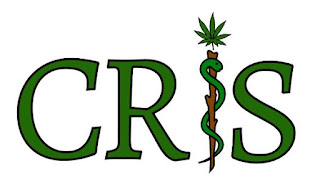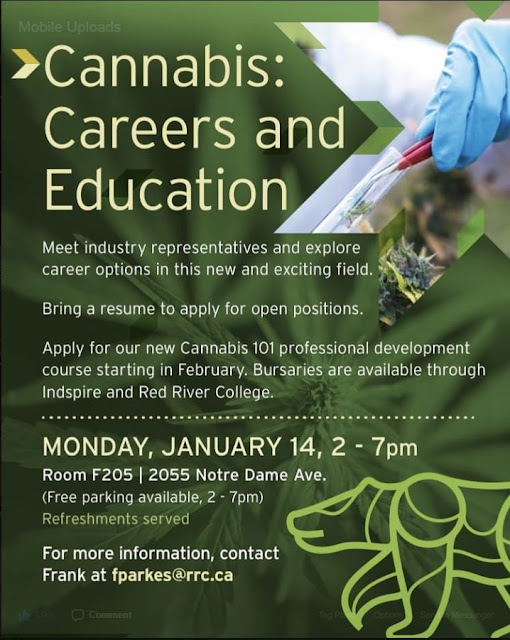SCIENCE ROUNDUP pt 1- Mental health risks, CRIS
Salutations
Researchers are enthusiastic about the possibilities for new medicines and treatments utilizing cannabinoids for psychiatric, physical and emotional support. Medical data has begun to be collected, compiled, analyzed and reviewed. I'll break it down into bite sized chunks for us if I can.
Youth at risk::
Psychological reports show a positive link between mental health problems and the early usage of THC products. As teens experiment with marijuana for any number of reasons, they may be unknowingly raising their risk to overall mental well-being with increased rates of psychosis, schizophrenia and attention deficit disorders. ( not to mention increased rates of unemployment and lower educational attainment )
Magnetic resonance imaging shows that THC can cause the brain to function abnormally, with different pathways being utilized to complete the same instructions while "high" than when sober. Memory and cognitive functions may suffer while under the influence and this may affect the developing brain in ways we should be concerned about.
Reported cannabis use among teens has declined in recent years but the availability and potency has only increased. Teens who reported a daily use of cannabis were double the risk of early onset psychosis than lightly or non smoking peers. A 5 year window of daily use was highly predictive of increased rates for psychological distress, especially in people who started at a young age.
The common thread linking the questions being asked by physiological, social and psychological healthcare professionals: There's not enough data to offer a broad spectrum answer to the questions surrounding medical marijuana, but they are glad they are finally able to get to work with some scientific evidence in a legalized landscape.
Doctors want to know: What? how? and why? to dose this medication.
A group of researchers based in the University of Saskatoon, in Saskatchewan are working to disentangle the biological, social and psychological ramifications of cannabinoids. The Cannabis Research Initiative of Saskatchewan is an interdisciplinary research team seeking scientific evidence about the application of cannabinoids to humans and animals for health, disease and disorders.
CRIS is not funded by cannabis LP's or political groups and will be providing independent data that should help advance the knowledge of health care practitioners around the world. The possibility of bias must be addressed when assessing medical claims in this unfolding frontier.
Trials are taking place all over the world in one form or another, from CBD medications to treat epilepsy in children, to MS studies right here in Winnipeg. The Canadian Consortium for the Investigation of Cannabinoids posts links to current and recruiting studies relating to cannabis if you're interested in finding out details.
I just want to thank a good friend M.P. for providing a host of data and helping a layman like myself find my way through the weeds so to speak.
Researchers are enthusiastic about the possibilities for new medicines and treatments utilizing cannabinoids for psychiatric, physical and emotional support. Medical data has begun to be collected, compiled, analyzed and reviewed. I'll break it down into bite sized chunks for us if I can.
Youth at risk::
Psychological reports show a positive link between mental health problems and the early usage of THC products. As teens experiment with marijuana for any number of reasons, they may be unknowingly raising their risk to overall mental well-being with increased rates of psychosis, schizophrenia and attention deficit disorders. ( not to mention increased rates of unemployment and lower educational attainment )
Magnetic resonance imaging shows that THC can cause the brain to function abnormally, with different pathways being utilized to complete the same instructions while "high" than when sober. Memory and cognitive functions may suffer while under the influence and this may affect the developing brain in ways we should be concerned about.
Reported cannabis use among teens has declined in recent years but the availability and potency has only increased. Teens who reported a daily use of cannabis were double the risk of early onset psychosis than lightly or non smoking peers. A 5 year window of daily use was highly predictive of increased rates for psychological distress, especially in people who started at a young age.
The common thread linking the questions being asked by physiological, social and psychological healthcare professionals: There's not enough data to offer a broad spectrum answer to the questions surrounding medical marijuana, but they are glad they are finally able to get to work with some scientific evidence in a legalized landscape.
Doctors want to know: What? how? and why? to dose this medication.
A group of researchers based in the University of Saskatoon, in Saskatchewan are working to disentangle the biological, social and psychological ramifications of cannabinoids. The Cannabis Research Initiative of Saskatchewan is an interdisciplinary research team seeking scientific evidence about the application of cannabinoids to humans and animals for health, disease and disorders.
CRIS is not funded by cannabis LP's or political groups and will be providing independent data that should help advance the knowledge of health care practitioners around the world. The possibility of bias must be addressed when assessing medical claims in this unfolding frontier.
Trials are taking place all over the world in one form or another, from CBD medications to treat epilepsy in children, to MS studies right here in Winnipeg. The Canadian Consortium for the Investigation of Cannabinoids posts links to current and recruiting studies relating to cannabis if you're interested in finding out details.
I just want to thank a good friend M.P. for providing a host of data and helping a layman like myself find my way through the weeds so to speak.





Comments
Post a Comment